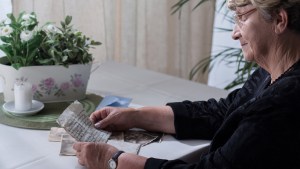In this digital society, it’s important we learn to “identify the essential and filter out the unnecessary.” In this interview, professor of memory and methodology Anne de Pomereu offers several strategies to help us do this:
Improving memory in an age of artificial intelligence—is it really useful?
Memory is indispensable for reasoning: we can only think in an intelligent way if we possess a certain level of knowledge. The more digitalized the world becomes, the more crucial it is to have a good memory. Nowadays we live in a world that is overloaded with information. Given that memory is associative, we need to have solid anchors that help us capture and retain what is new. If fake news work so well it is because people have not acquired enough knowledge to ask themselves: Is this true or false?
Should we remember everything?
Remembering everything would be as absurd as it is useless! Do not be afraid of forgetting. It is a noble function of memory, not its “opposite.” It allows you to retain what is essential and filter out what is superfluous. Besides, forgetting is necessary to recover from trauma or grief. The goal is not to accumulate knowledge like a machine. The important thing is to memorize solid knowledge that allows you to develop inner freedom—the capacity to make good decisions—without social or ideological pressures. When we can rely on ourselves through knowledge that we control, we gain self-esteem and inner peace.
Why do some people remember so much and others so little?
When we are born, memory is not equally distributed to everyone. But nothing is set in stone! We can acquire an extraordinary memory, because remembering things can be learned. It only decreases if we don’t use it.
Are there different types of memory?
Our abilities are unequally distributed in us. We often speak of visual memory, hearing memory, or kinesthetic memory. And we can take that even further: memory of data, of abstract names, of texts and poetry, of the words in songs, of our personal memories, of places, of people we know. Medical imaging has confirmed that our memory is plural: short term memory (which decreases with age) retains information (limited in quantity and length) before transferring it to long term memory. Long term memory, in turn, is made up of gestural or procedural memory (riding a bike, driving, etc.), semantic memory (learned knowledge) and episodic memory (things that have happened to us).
How can I find out what type of memory I have?
Just ask yourself: What is easy for me to memorize? What is difficult for me to memorize? Personally I find it extremely difficult to remember people’s names, but I can remember numbers very well. My daughter can remember the lyrics from a song after listening to it just two or three times, while it takes me much more effort and I have to separate it out from the melody to get it down.
What do you recommend we do to improve our memory?
Let’s start with what comes easy. Memory retains places and images perfectly well. So what we’ll do is use our imagination to transform the things we want to remember into visual signs. This is what I call “mental images.” Then we will organize these images into real places, fixed into points of transit, and distributed in a given order. The order of the places keeps things in order. This is the famous “memory palace,” handed down to us by the Greeks, which is very well known but not often put into practice. Just a few well-anchored points of information are enough to hold many others without much effort.
I love history, but I tended to mix everything up and not remember anything until I learned the chronology of the kings and presidents. I made a list with the dates of their reigns and presidencies. Then I took that information and transformed the names and dates into mental images in a fun way in my “memory palace.” I put all the kings and queens that reigned in the same century together in one room. Using this chronological knowledge, now I can better appreciate historical programs and easily remember the books I read. This is what I call the hook strategy.
What does this strategy consist of?
It consists of not just simple rote memorization. In order to remember something for a long time, you have to select around 20% of the content—which is the minimum necessary—that you will solidly “codify,” which will enable you to recall the rest easily.
You say that attention is the doorway to memory. In our noisy and screen-dominated society, isn’t our attention abused?
Without attention, nothing can be remembered! However, our attention is fragile,, disobedient, and always attracted to what is easiest. Our attention is greedily coveted by content creators (Facebook, Twitter, Snapchat, Instagram, etc.), which are very skilled in grabbing it. For example, we want to work but we easily waste two hours surfing the web on our favorite sites. Today, those who are successful and realize their potential are those who are able to dominate their attention and resist the temptation to multi-task.
Does a good memory make you happier?
Of course! Simone Weil said in De l’attention: “Intelligence can only be guided by desire. For there to be desire, there has to be pleasure and joy. Intelligence is only fruitful through joy.” Knowing a psalm by heart is not the same as reading one in a missal. Thinking over a prayer increases my spiritual joy and brings me closer to God. Knowing by heart a poem by Baudelaire, a song by Aznavour, or a speech by the long-nosed Cyrano de Bergerac makes us happy. When a lawyer convinces a jury without having to look at his notes, this reinforces the power of his or her arguments. In memory there is a pedagogy of happiness.
Caroline de Fouquières

Read more:
Why an early memory of my grandmother’s defined her whole life

Read more:
How can you live happily today if painful memories hold you back?

